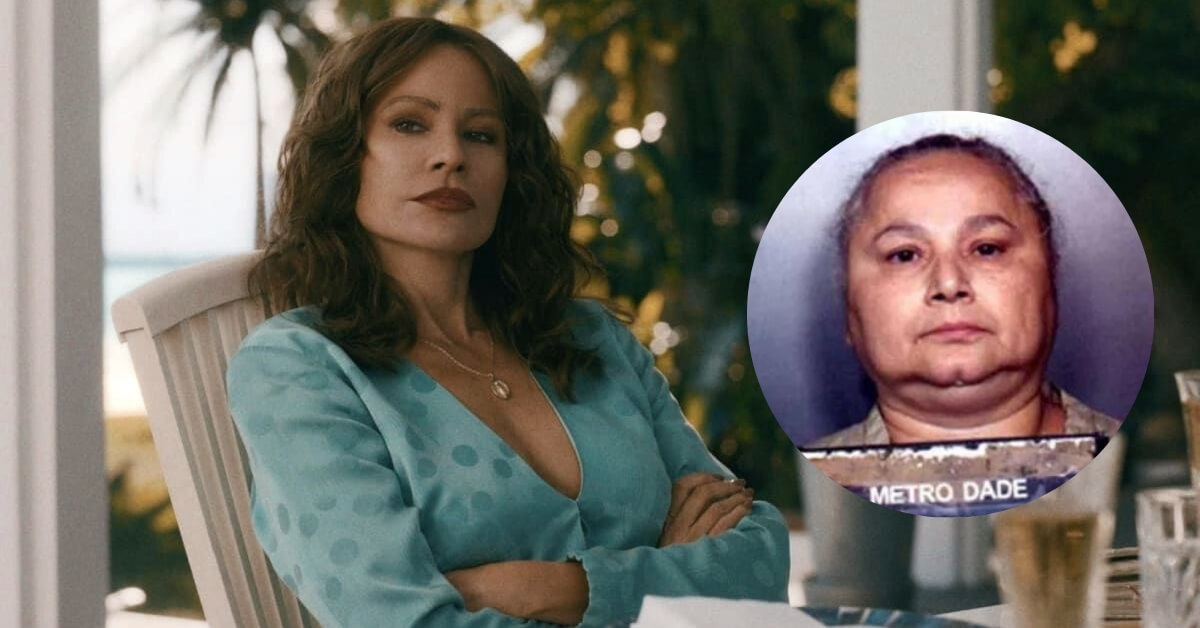The Netflix series Griselda is getting a lot of attention from viewers. However, fans of the show want to know just how much of the story is rooted in fact and how much is fiction/ dramatization.
The truth is somewhere in the middle. After all, first and foremost, it is a Netflix series, not a documentary. But is the show even based on the real person- Griselda Blanco?
Netflix’s “Griselda” is based on the real-life story of Griselda Blanco, born on February 14, 1943, in Colombia and raised in Medellín. Unfazed by criminal pursuits, she ventured into the drug trade. The series expertly blends actual figures and occurrences with the overarching theme of “women in power” amid a male-dominated sphere, resulting in a captivating narrative tailored for streaming audiences.
Is Netflix’s Griselda Based on the Actual Drug Queen?
The Netflix miniseries “Griselda” is based on Griselda Blanco, often nicknamed the “Godmother of Cocaine.” She was a real person and drug trafficker who was born on February 14, 1943, in Colombia and grew up in Medellín.
The show primarily focuses on the late 1970s, the peak of Griselda Blanco’s reign, when she returned to the United States and set up her drug empire in Miami, Florida.
Director Andres Baiz emphasized the importance of research in creating the series, saying in an interview with Radio Times:
“We do all the research possible… once you have all this information, you’re then going to tell this story of someone.”
While many characters and events in the show are accurate, the series is driven by the theme of “women in power” and “women in a man’s world.” So, it’s a mix of fact and fiction. Done so to dramatize the story for the audience of a streaming service.
How Did Griselda Die in the Netflix Show? What Happened to Her in Real Life?
In the heart-pounding finale of the series “Griselda,” the titular queenpin’s paranoia takes center stage, leading to a dramatic twist that leaves viewers on the edge of their seats.
One of the pivotal moments occurs when Marta, the girlfriend of her colleague and rival, Rafa Salazar, tragically overdoses and dies while alone with Griselda.
Fearing that Rafa and the formidable Ochoa brothers will wrongly accuse her of murder, Griselda makes a fateful decision—she turns herself into the police.
However, Griselda’s plan to secure a place in prison as a shield against her enemies doesn’t unfold as expected. While it’s true that the police can only charge her with minor drug-related offenses, a brilliant detective named June Hawkins hatches a cunning plan.
She reports that Griselda’s minor son was kidnapped by Rivi Ayala, a trusted associate of Griselda.
This unexpected turn of events results in Rivi Ayala’s capture, leaving Griselda’s children vulnerable and unprotected. Miraculously, Rivi manages to discredit himself as a witness through a scandal involving the Assistant DA, preventing murder convictions for Griselda.
Instead, she faces seven years in prison, a significantly lighter sentence compared to the potential life imprisonment she could have faced.
Tragically, Griselda’s grand plan to reunite with her sons after her release from prison takes a heartbreaking turn.
Detective Hawkins delivers a devastating blow, revealing that all of Griselda’s sons, except Michael, have been brutally murdered.
Although the series does not explicitly name the culprits, it strongly implies that Rafa Salazar orchestrated the heart-wrenching separation just before Griselda’s long-awaited reunion.
The series concludes with a poignant scene of Griselda reminiscing about her past while in prison. She imagines herself on a serene beach, continuing her ritual of tracing the scenery with her cigarette.
The epilogue reveals that Griselda ultimately returned to Medellín, Colombia, where Michael resided with his grandmother. However, the closing text leaves viewers with a chilling revelation—Griselda was assassinated in 2012 at the age of 69.
In real life, the story is a little different.
Real Griselda’s life took a dark turn when she was arrested in February 1985 after a lengthy investigation by the formidable Drug Enforcement Agency (DEA).
Agent Robert Palombo, who played a crucial role in her capture, found her reading the Bible in bed before apprehending her.
Her evasion of justice had taken a toll on Miami, and her arrest resulted in a significant drop in the city’s homicide rate.
Griselda faced drug trafficking charges and was sentenced to 15 years in prison. Later, she was tried for homicide, but the trial faced complications due to a witness scandal.
Despite this, an additional 20 years were added to her sentence.
However, Griselda’s health deteriorated, leading to a compassionate release after serving only seven years of her sentence.
She was deported to Medellín, Colombia, where, eight years later, she met a tragic end. She was gunned down in a drive-by shooting by a helmet-wearing motorcyclist, whose identity remains unknown.
So, while “Griselda” on Netflix presents a dramatized version of her story, the essence of Griselda Blanco’s life and her impact on the drug trade is very real.
Griselda is streaming on Netflix.
What did you think of the creative liberties taken by the Netflix show? How much would you rate the show out of 10?
Let us know in the comments below.
Source: Radio Times

